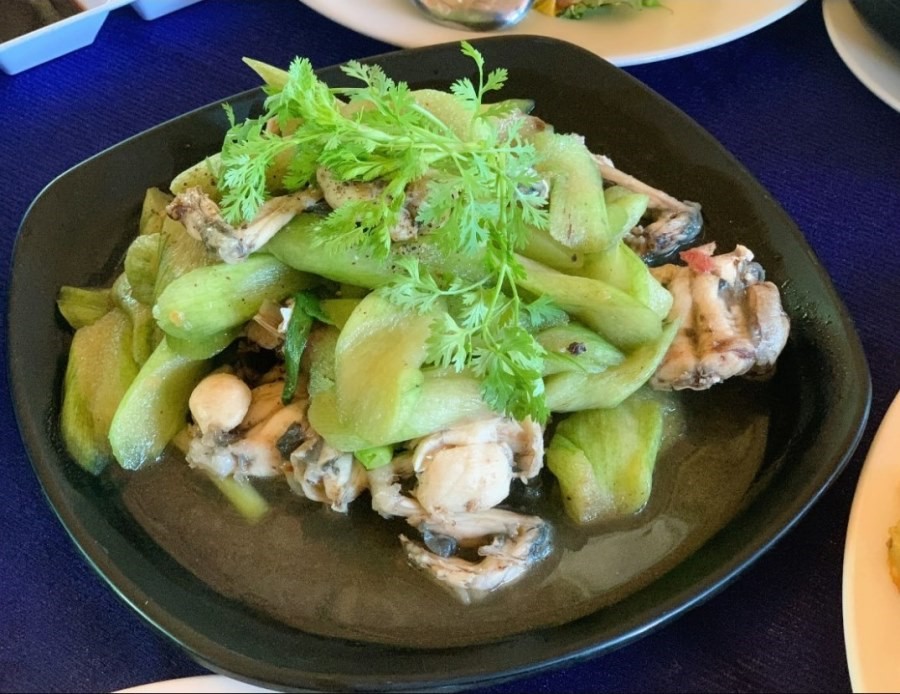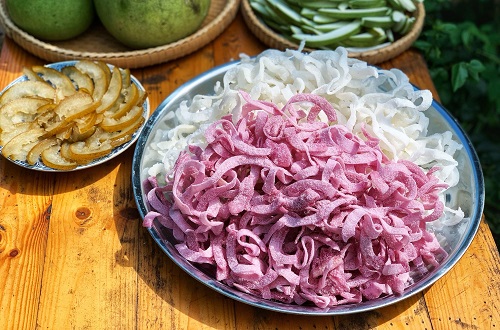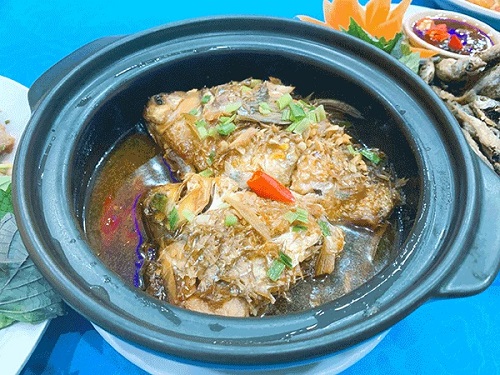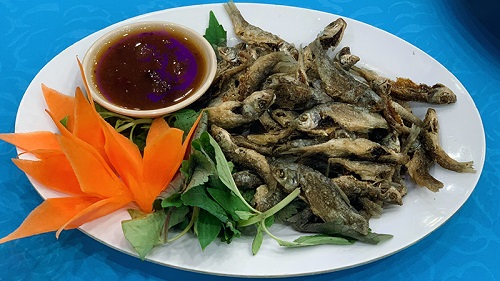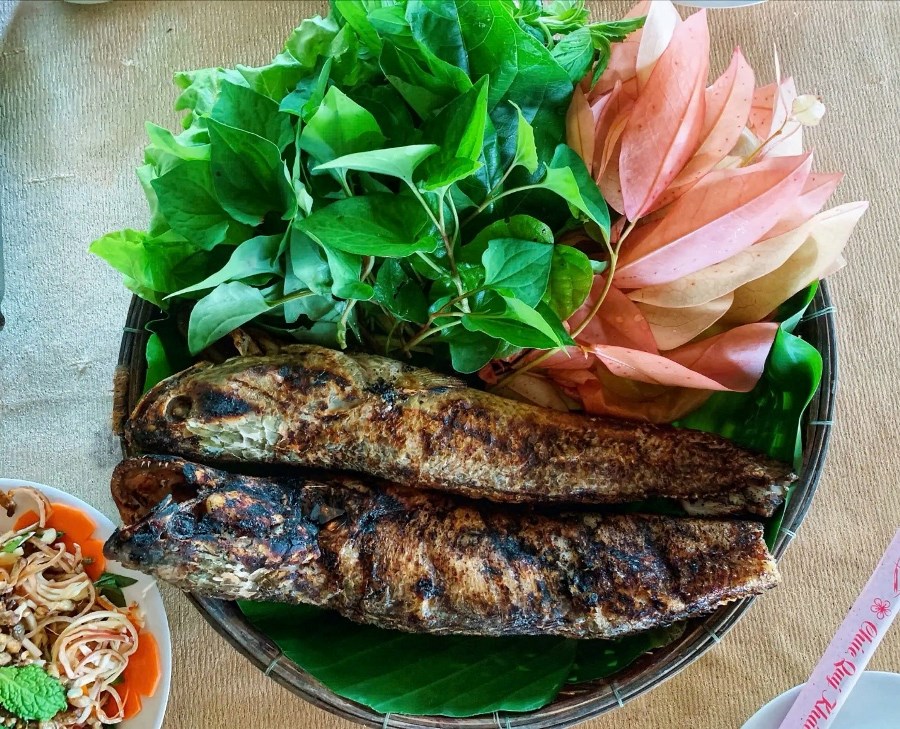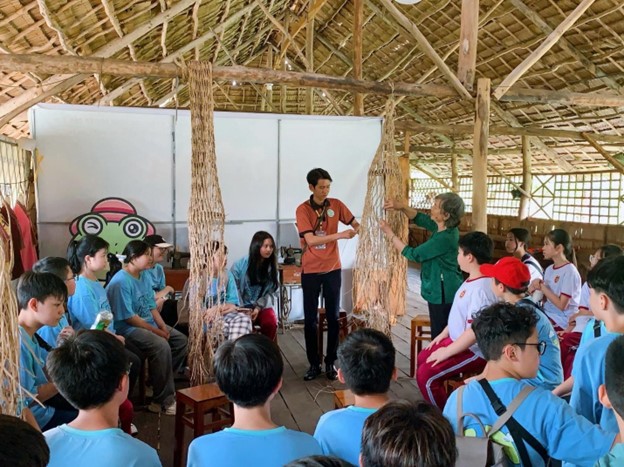
From the end of February until March 2025, about 1,700 teachers and students of Vietnam Australia International School (VAS) will experience the exciting and innovative “Can Tho - Road to Net Zero” program. “Can Tho - Road to Net Zero” is a journey of discovery implemented by Haiau Educursions based on natural resources and indigenous culture of Can Tho. Mr. Ly Duy Huynh, Head of Research and Product Development Department of Haiau Educursions, said: The idea of “Can Tho - Road to Net Zero” is based on many factors, including important keywords: indigenous cultural heritage, natural resources, environment...Both Haiau Educursions and VAS agree to build experiences for young people to approach, learn and take actions to contribute to society, specifically the environment.
Accordingly, “Can Tho - Road to Net Zero” provides students with indigenous experiences in Son Islet, Cantho Eco Resort. At each destination, students will experience tourism products, meet local people, learn about local culture and how people operate tourism products associated with environmental protection. Mr. Ly Van Bon, owner of Bay Bon fish raft in Son Islet, said: “This is a very good program, bringing many benefits to Son Islet people and students. When students come to find out how the people here have a routine of living, what plants they grow, what animals they raise, how to do tourism, how to protect the environment. There are questions that students ask very deeply, paying much attention to environmental protection, I myself am very happy and try to convey the knowledge, the things that people in Son Islet do while doing tourism, planting trees, collecting trash, raising young fish, protecting fish species and the environment”.
Student Le Van Duc Phat (Ho Chi Minh City) said: “In the journey I have experienced, I was most impressed by Mr. Bay Bon's fish raft. Here, Mr. Bay told us a lot about fish and how to protect them. From what he shared, I understood the messages of environmental protection in tourism activities”. Student Duong Hoang Minh Phuc (Ho Chi Minh City) added: “When listening to what Mr. Bay Bon shared, I learned more about fish species and how to protect the environment. Through that, I will not catch small fish and use items made from environmentally friendly materials”. As for student Nguyen Tuan Kiet (Ho Chi Minh City) loved Ms. Ban Xieu Tien's hammock making profession because according to him, banana string material is very environmentally friendly, easy to decompose and does not cause much emissions. Ms. Ban Xieu Tien said: “When performing for the students, I want to introduce the old profession of my grandparents. In the past, materials around the house such as bananas, coconuts, etc. could be used to make familiar items. For example, this hammock is woven from banana fibers. It looks cheap but it must be very strong. Banana fibers are very environmentally friendly, easily decomposed and can be used as a nutrient fertilizer for plants”.
Mr. Ly Duy Huynh, Head of Research and Product Development Department of Haiau Educursions, shared: With “Can Tho - Road to Net Zero”, we want to change the awareness of each individual and turn it into appropriate actions. Therefore, the highlight of the journey is the project “For a prosperous Son Islet in the future” for students to carry out. Students meet each tourism model of the people in Son Islet, identify, evaluate the application of Net Zero standards in each household and record a clip about that journey. This video will be shown for teachers and experts from the Institute of Climate Change Research - Can Tho University to give comments”. It can be seen that “Can Tho - Road to Net Zero” is a journey to explore Can Tho from a new, dynamic and creative perspective. There is not only an experience of indigenous culture but also a contribution to environmental protection actions.
In fact, Net Zero Tourism is not only a global trend but also a strategy that brings many benefits to both tourists and the environment. Most importantly, zero-emission tourism helps reduce the amount of greenhouse gases emitted from tourism activities, contributing positively to the world's common efforts to minimize the impact of climate change. Meanwhile, the Mekong Delta is a place that is suffering many serious impacts of climate change. The tourism system planning for the period 2021-2030, with a vision to 2045 of our country, also identifies the development of sustainable and creative tourism, on the basis of green growth, maximizing the contribution of tourism to the United Nations' sustainable development goals; protecting the environment, responding flexibly and effectively to risks and climate change. Thus, developing Net Zero Tourism has become a common goal of many destinations and localities. In the integration process, in Can Tho, many destinations and travel agencies have also proactively implemented zero-emission tourism, step by step making their own mark.
Source: Cantho News - Translated by Hong Nhien








